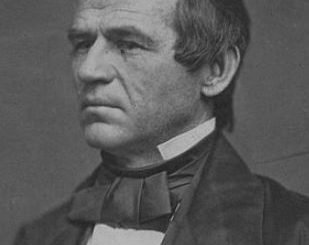10 things you should know about former U.S. President Jimmy Carter

President Jimmy Carter
Jimmy Carter – a Georgia state-born U.S. Naval Academy graduate and politician – defeated incumbent President Gerald Ford in 1976 US presidential election to clinch the White House job.
President Carter has been described by many historians as a very peculiar president whose single term as commander-in-chief was literally a tale of two stories. The first two years were marked with resounding economic growth; however, the final couple of years in office saw the United States writhe in pain owing to stagflation, a deadly combo of inflation, rising unemployment and slow economic growth.
In the article below, World History Edu takes a look at the 10 things you should know about Jimmy Carter, the 39th President of the United States of America.
- Born on October 1, 1924, his parents – James Earl Carter Sr. and Bessie Lillian – named him James Earl Carter Jr. He was born at the Wise Sanitarium (presently the Lillian G. Carter Nursing Center) in Georgia. His mother worked as a nurse at the hospital. His father, a former lieutenant in the U.S. Army, was local businessmen with a number of ventures in Plains, Georgia. Even though Carter was allowed to mingle with black children, his father held strong pro-segregation notions.
- Jimmy Carter was the first person in his father’s family to earn a high school diploma. In 1941, he enrolled at Georgia Southwestern College to study engineering. Two years later, he secured an admission to the Naval Academy. He graduated in the top 10 percent of his 1946 graduating class.
- After falling in love with Rosalynn Smith, he married her in 1946. Rosalynn was Carter’s sister’s (Ruth) friend.
- Due to the death of his father in 1953, he had to put aside his military job and attend to his family’s business— a peanut farm. Initially, his growing family struggled to keep the business afloat; the Carter family lived in subsidized housing. Carter also served as chairman of the Sumter County school board, where he campaigned for more racial integration in schools following the 1954 U.S. Supreme Court case of Brown v Board of Education.
- Jimmy Carter entered the political arena riding on strong themes of civil rights; however, he later moved into a slightly centrist position as his political career progressed. He won a seat in Georgia State in 1962. Two years later, he was re-elected. His time in the Georgia State Senate saw him chair the Education Committee. He was also on the Appropriations Committee.
- On January 12, 1971, Jimmy Carter was sworn in as the 76th Governor of Georgia. Carter had won the state general election, defeating Republican Hal Suit. His governorship is best remembered for the removal of racial barriers, budget cuts, and massive reorganization of the various state departments in Georgia.
- Going into the 1976 U.S. presidential election, Carter was considered a dark horse candidate. However, he gradually positioned himself to become the Democratic Party’s favorite, defeating Alabama Governor George Wallace at the primaries. Capitalizing on the horrendous record and scandal-plagued term of Gerald Ford’s successor – President Richard Nixon – Carter defeated incumbent President Gerald Ford in the 1976 presidential election. The former governor of Georgia pulled 50.1% of the popular vote (versus Ford’s 48.0% ) and 297 electoral votes (to Gerald Ford’s 241). Carter became the first president from Georgia and the first to hail from the Deep South since President Zachary Taylor‘s election in 1848.
- As stated in the introduction, President Carter’s first two years in the Oval Office was quite remarkable. However, it all went downhill following the dire economic problems of the late 1970s which saw the nation grapple with an energy crisis, high unemployment, and slowed economic growth. The Carter administration also came under huge backlash over the Iranian Hostage crisis, which saw fifty-two American diplomats and citizens taken hostage in Iran for 444 days (November 4, 1979 to January 20, 1981). Owing to those issues, both domestic and abroad, Carter lost the 1980 presidential election to Republican Ronald Reagan.
- The positives to his presidency came when he pardoned draft evaders of the Vietnam War (using the executive order – Proclamation 4483). The Presidency of Jimmy Carter can take solace in the fact that it brokered a peace accord (i.e. the Camp David Peace Accords) between Egypt and Israel in the Middle East. Carter was also responsible for bringing down tensions between the U.S. and arch rival the Soviet Union as he signed the Strategic Arms Limitation Talks (SALT) II nuclear treaty* with Soviet leader Leonid Brezhnev. His administration also established diplomatic relations with the People’s Republic of China.
- He went on to have an impactful career after leaving the Oval office in 1981, as he got involved in the promotion of human rights, poverty reduction in Africa, South America and Asia. He was also big advocate of several projects run by the Habitat for Humanity. In 2002, Carter was awarded the Nobel Peace Prize for “his decades of untiring effort to find peaceful solutions to international conflicts…”.
* After the USSR’s invasion of Afghanistan, the U.S. showed responded by not ratifying the agreement. And although the Carter administration pulled the plug on the treaty, both the U.S. and the Soviet Union proceeded to honor majority of terms in the agreement.
Read More: Major Accomplishments of Jimmy Carter



























